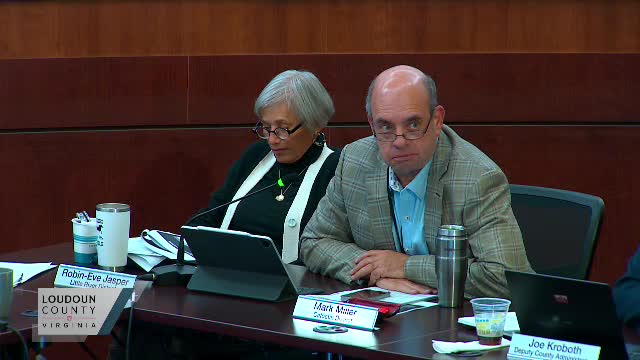Stakeholders push food‑service flexibility, food trucks and incentives for local sourcing in Western Loudoun
Get AI-powered insights, summaries, and transcripts
Subscribe
Summary
Industry, farmers and planning staff discussed expanding allowed food service at agritourism venues, clarifying VDACS vs health‑department rules, and whether to allow food trucks as interim or longer‑term options. Stakeholders favored incentives for local sourcing rather than strict percentage mandates.
County staff asked stakeholders whether the zoning ordinance should expand permitted food service beyond VDACS‑level prepackaged offerings and whether mobile vendors (food trucks) could be allowed to remain on site for extended periods if they meet health‑department requirements.
Industry and farm operators generally supported more flexibility. Kate Zerschmeid (Great Country Farms, Bluemont Vineyard, Dirt Farm Brewing) said "food trucks make an excellent interim step" to bring farm‑to‑table dining to multiple sites and to broaden guest experiences. Several stakeholders said food trucks are inspected by the health department, can be required to submit approved menus and can provide a cost‑effective route to on‑site food service without full commercial kitchens.
Staff and the building official cautioned that expanding health‑department regulated food service may trigger building‑code or septic/water upgrades that can remove a portion of an operation from ag exemptions. Raymond Minaldi said whether a portion of a building used as a restaurant remains ag‑exempt depends on how the building is configured and whether fire and egress separations are provided; in practice new high‑occupancy uses often require permitting and building‑code compliance.
On sourcing, conservation and farm representatives urged stronger local‑sourcing incentives. Several speakers said a rigid 51% on‑site sourcing requirement for "rural restaurants" is difficult to meet year‑round and recommended incentives or phased targets and technical support for processing and cold storage capacity. Stakeholders favored options such as a county program or label to recognize establishments that meet local sourcing benchmarks rather than inflexible thresholds.
Committee members asked staff to analyze how a relaxed approach (expanded VDACS/health‑department pathways, controlled multi‑day food‑truck presence and incentives for local sourcing) would affect enforcement, septic/water infrastructure and the county's ag‑first policy. Staff will return with regulatory options and technical implications analysis.
